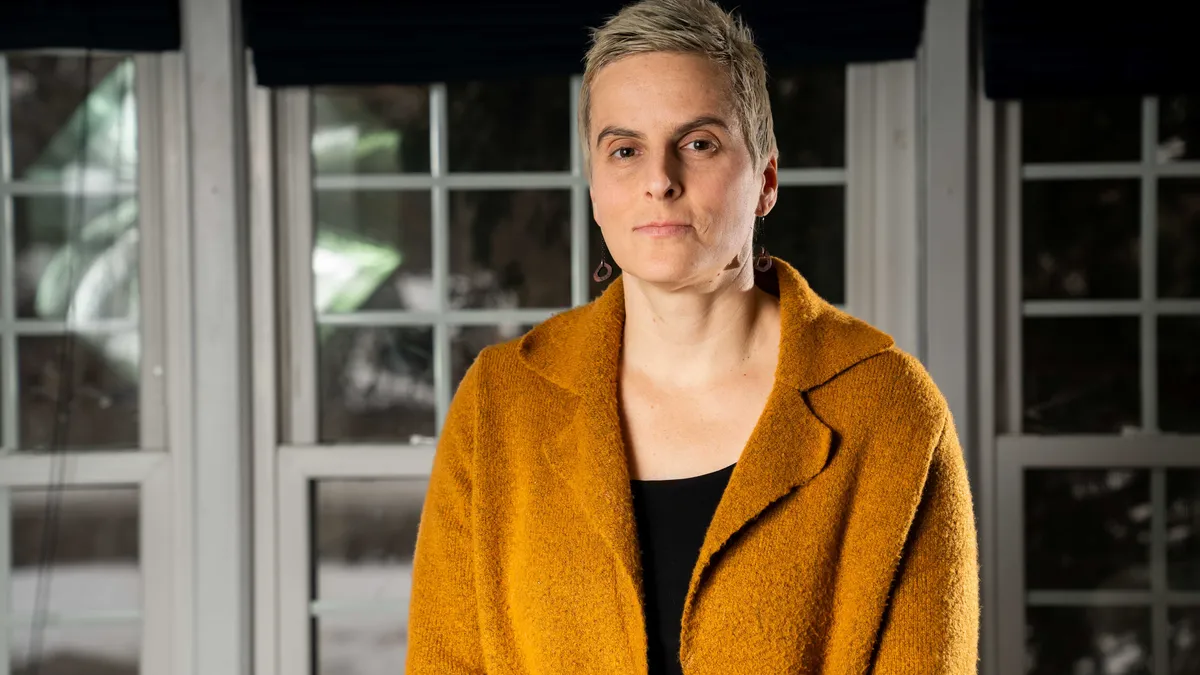In Iowa, an increasing number of parents are giving up custody of their children to access essential mental health services. Nina Richtman, a 43-year-old mother from Des Moines, faced this heartbreaking decision after struggling for years to secure adequate care for her teenage son, whose behaviors escalated to dangerous levels. Last summer, after exhausting all options, including therapy and crisis stabilization programs, she chose to relinquish custody to the state when her son began starting fires in their home.
Richtman’s situation highlights a troubling trend in Iowa, where families often feel they have no alternatives. According to officials from the Iowa Department of Health and Human Services (HHS), the state’s fragmented and underfunded mental health system lacks a clear pathway for obtaining care, forcing parents to take drastic measures. Kim Scorza, executive director of the Crittenton Center, noted that many families reach a breaking point and feel powerless to find help.
The need for mental health services has surged among Iowa’s youth, particularly since the COVID-19 pandemic. The number of young people receiving behavioral health services in the state rose nearly 40% from fiscal years 2018 to 2023. Yet, a recent report from Mental Health America found that half of Iowa children with major depression did not receive any treatment in the past year.
Richtman adopted her son and his older brother from foster care when they were toddlers. Despite seeking every available therapy and support, including special education services and crisis interventions, her son’s behavior worsened. After applying to 21 residential care facilities without success, Richtman felt compelled to involve child welfare officials as a last resort, fearing her son could end up in the juvenile justice system.
In Iowa, parents can trigger the child in need of assistance (CINA) process for vague reasons under state law. Data shows that while the total number of children entering the system for mental health concerns decreased from 148 in 2019 to 49 in 2024, the number of youth entering foster care due to parents being unable to manage behavioral health needs has risen.
Nicole Woodley, a mother from Clarion, shares a similar story. She has filed three separate CINA cases for her adopted children, seeking court assistance to access necessary behavioral health services. Woodley’s eldest son, diagnosed with autism and several other disorders, exhibited violent and disruptive behaviors. After being rejected for placements in multiple facilities, her family turned to the court system for help.
Despite finding some success in securing placements for her children, Woodley emphasizes the emotional toll this process takes on families. She felt that relinquishing custody was the only way to ensure her children received the appropriate care they needed.
HHS officials recognize that the current youth mental health system in Iowa lacks effective solutions. Marissa Eyanson, behavioral health director for Iowa HHS, stated that there is no clear pathway for parents seeking help for their children. Many private providers refuse to accept youth with severe behaviors due to liability risks, leaving families without options.
State officials are working on an overhaul of Iowa’s behavioral health system, aimed at improving access to mental health and substance use services. The new system, signed into law last year, focuses on preventive and early intervention services. However, many details remain unclear, and providers stress that the system must be more navigable for families.
Richtman’s son currently resides in the Polk County Juvenile Detention Center, having become entangled in the justice system. She expresses frustration over the lack of appropriate care available for him, stating that he still does not receive the necessary level of treatment for his needs.
Both Richtman and Woodley urge state leaders to invest more in youth mental health services and to create a more coherent system for families seeking help. They stress that without a reliable support network, many parents will continue to feel overwhelmed and resort to relinquishing custody as a last resort. The need for a robust mental health infrastructure in Iowa remains critical as more families struggle to find the assistance their children require.
